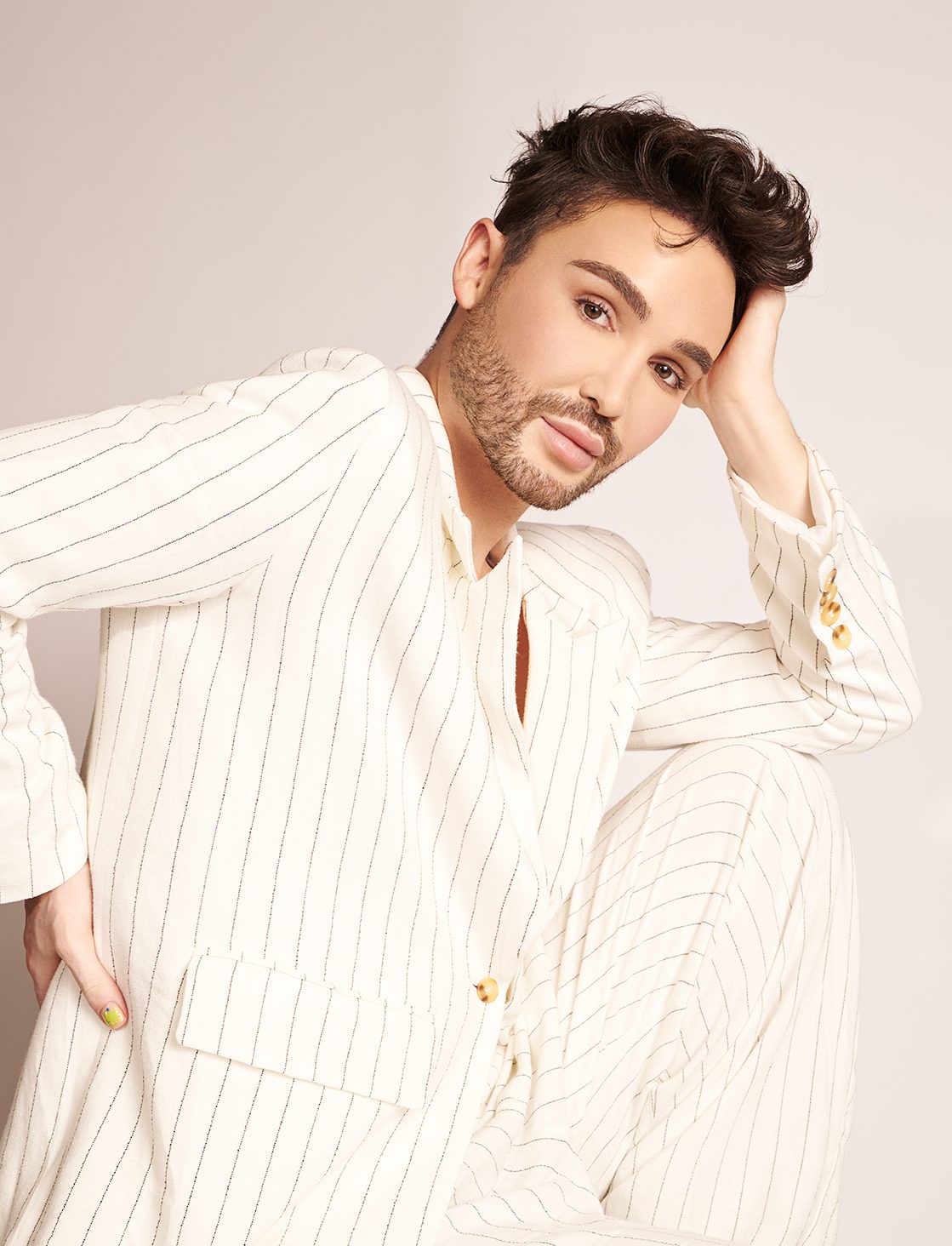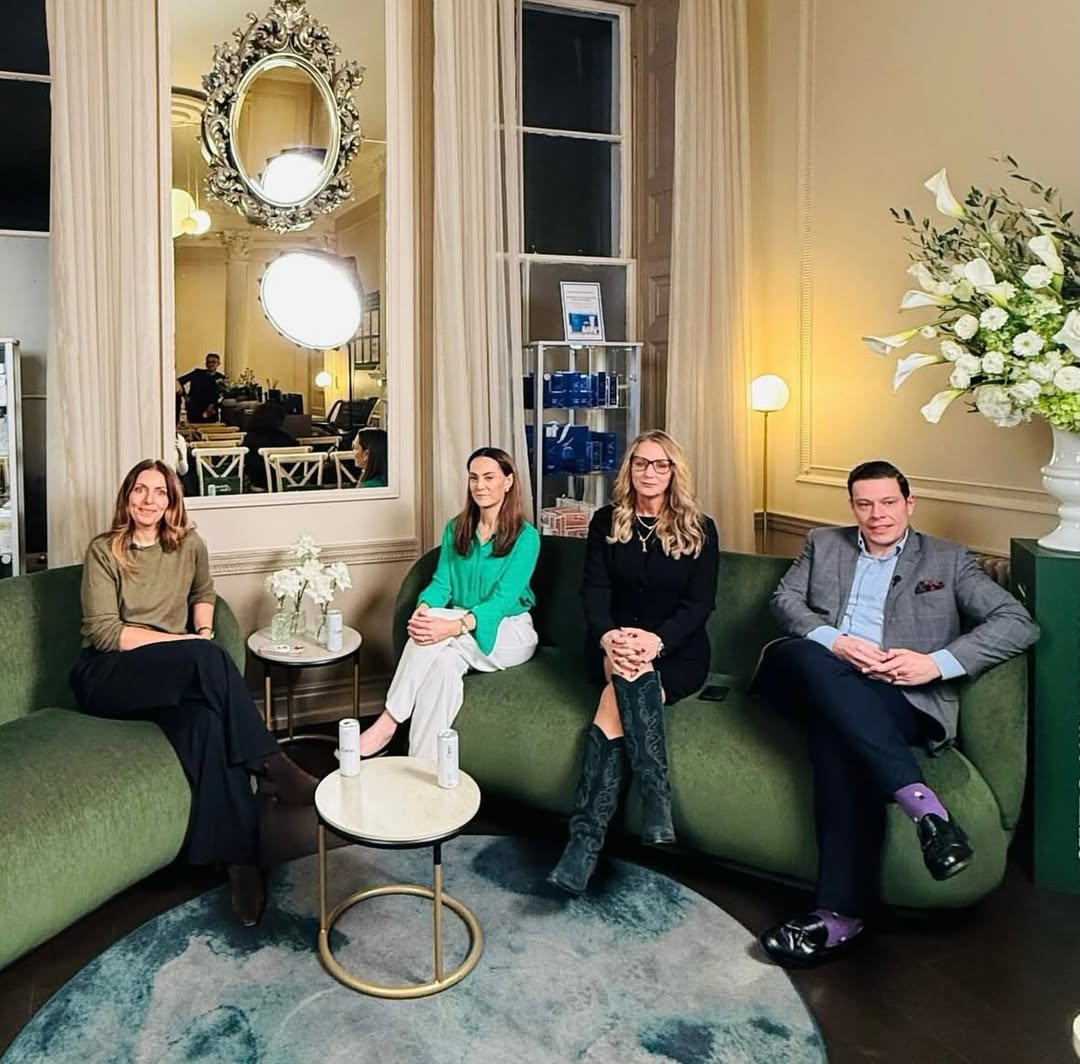British YouTuber, presenter, and author Daniel Howell offers a practical yet poignant look into mental health – his own struggles held up as a mirror for anyone else going through the same – in his book You Will Get Through This Night.
Written in conjunction with psychologist Dr Heather Bolton, the book is an amalgamation of Howell’s own experiences and Dr Bolton’s expert perspective combined to create a reading that feels like a personal attack in the best of ways, forcing you confront, embrace and then overcome your perception of your own mental health.
Best described as, “a practical guide to taking control of your mental health for today, tomorrow, and the days after,” You Will Get Through This Night takes readers through Howell’s mental health journey, wrapped in his trademark sense of humour and nuggets of wisdom that urge them forwards in their path to a healthier mindset.
Speaking to 1883, Howell describes what pushed him to write the book, learning to question his normal, how upbringing and culture impacts one’s perception of mental health, the role that a sense of humour plays in getting the conversation around mental health started and more.
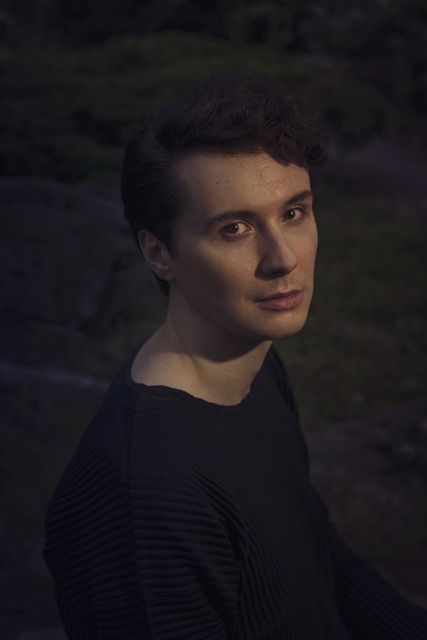
Was there a particular moment that solidified your decision to write this book?
I think it was just realizing the power that every single person has to tell their story and break down the wall. Because with mental health, it’s the thing that every single person has a universal experience of. And yet, we all like to go, ‘I’m fine,’ when we’re completely having a meltdown on the inside and it was me opening up, not because I thought it was a nice idea just because I thought I had to open up about what I was going through with my depression, my sexuality. I went through 27 years of terrible mental health, without even realizing that you’re not supposed to be that way. It’s
the idea that we all think we are broken, born in a certain way and doomed to feel that way forever, and that’s fundamentally wrong. I thought I’d like to write this book because other people may see themselves in it, notice that they relate to something, and therefore maybe there’s something about themselves that they need to work on. I literally I just wrote the book that I wish I could have read, because for me it was a struggle to even find the resources and the advice I needed.
You’ve mentioned in the book, that you never questioned your symptoms and that you were taken aback when the doctor said you were suffering from depression. But where there moments before that you started questioning this perception of what was normal to you?
I think it became my normal to feel bad all the time, which sounds dramatic but it was me. I thought it was all to do with my choices, age, environment and my job. But mental health is deeper than that, it’s something deeper and it’s something that you can actually have a positive effect on, which is what I wish I knew earlier, and it only happened when I got to a point where I was struggling, so much that I couldn’t even function day-to-day. In my mind, there was either nothing or there’s crazy. I thought you just have to get over your problems or you are totally crazy, which is so ignorant but that’s just not the truth. So, I went to a doctor and he said I think you might have depression and that is a real thing. And there’s lots that you can do about it. It’s about just understanding everything to do with how your thoughts and feelings work, the relationship between your biology and how you interact with the world physically. It was such a slow and painful journey to learn all of that that I thought, I’m just going to put it all in here and the idea is that for someone who picks up this book, they can go right in. I’ll put it up on the shelf and then when I need to read it, I’m going to pick it up and open it again. So, I just wanted to be super practical.
I really liked this quote in the book “breakdown can be breakthroughs”. So, when was the last time you can think of that a breakdown led to a breakthrough for you?
Every other week, like you know, all of us. It’s just human instinct to try and stick through it and ignore the problems especially with work. It’s a great excuse to lie, “ I know I feel bad but I’m really busy.” And it goes like that until things get way too intense. For me, there were moments where I felt I simply cannot keep going in my career or day-to-day life or try to pretend like I’m funny, until I deal with the fact that I’m gay. And though there was this terrible feeling like “have I hit rock bottom?” But the thing with any obstacle is that it stops you from going in the wrong direction and when you are forced to turn around usually it means you’re confronting the truth for the first time. Usually if someone has a breakdown, if you hit that wall in your life, that point where you absolutely can’t keep going
until you turn around and something scary is going to be waiting, it means you’re going in the right direction. When you have these moments of confrontation, instead of procrastinating or running away, if you face it then it’s hopefully better days ahead.
Speaking of procrastination, you talk about burnout and the five-minute rule in one section. How do you strike a balance between not procrastinating and getting things done, but also not overworking yourself?
The human concept of work is very strange and it’s just one of those great examples of something that we’ve all brainwashed ourselves to see a certain way, to put value on
certain things that are ultimately probably not great and inevitably lead to another dramatic moment of self-destruction and procrastination, which are both associated with so much guilt and shame.But in reality it’s not because I’m lazy that I don’t want to start this thing, it’s probably I’m terrified of starting this thing because I know that it’s important, I don’t want to fail at it. So, think of the five minute rule as ripping the plaster off, because it’s always the fear of starting. That was me, writing this book and feel like I’m not in the mood to do that, but then moment I start then I’d just write for consecutive hours. Again, it’s just snapping out of the mindset that you’re probably on, which goes I’m doing this because it’s important, and I have to do it. You probably don’t have to do it, you’re probably just running from something else. So, whether you are procrastinating, you think you’re lazy, or you’re telling yourself that you have to put up all of your issues to deal with whatever you’re busy with, you need to flip it around and look at it, not just from in healthier way but in more honest way. I’m not going to cripple myself with guilt and shame about procrastination but I’m not going to over work myself.
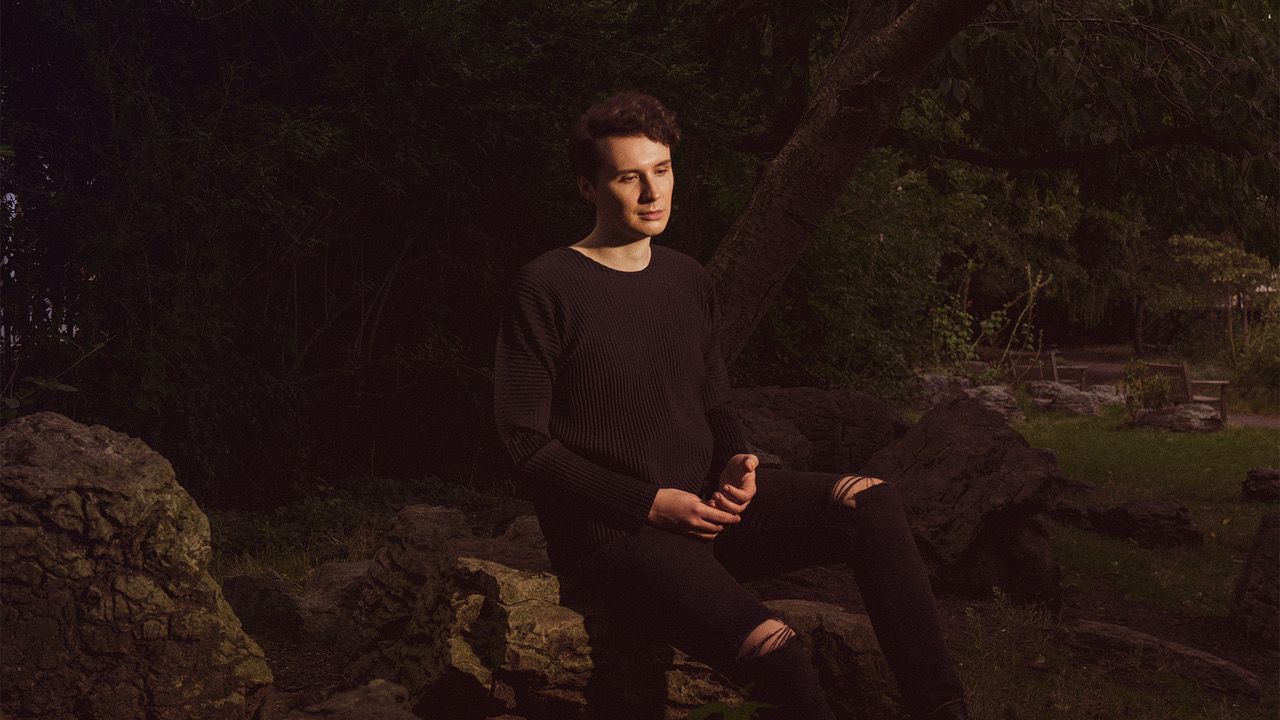
You’ve also written about how one of the worst things you can say to someone going through depression is to get over it. What’s the hardest of trying to get people to understand that it isn’t something you can get over?
I think you cannot underestimate how profoundly ignorant most of the world still is about mental health and that’s not people’s fault. It’s just that science, education and culture has just not been doing the right thing even if science recently has come a long way. We’ve got hundreds of years of stigma that come from. Breaking down the barriers, by being honest, with someone one-to-one is a great way to do that. And it just telling them “I’m not going to pretend that everything’s fine. I just want to tell you that, I feel that way.” And for a lot of people who say they don’t understand depression, anxiety etc, if just say I feel bad and I want to do something about it, people usually empathize with it. I also think lot of people want not take it seriously when other people say that because they feel like where was their help when they needed it? I think that the human nature is usually to feel almost jealous that someone else is asking for help or sympathy and they want to get better but you have to talk back to that voice and say maybe this is an opportunity for me to finally, be honest about how I might have been feeling the whole time. Because at some point you have to break the cycle.
Though you’ve said how you can’t underestimate how ignorant people can be, there’s a section of the book where you talk about how you uploaded your video, “Basically, I’m gay,” and braced for negativity. But that you were surprised by all the positive responses. So, what’s the most recent instance you can think of where you were pleasantly surprised by humanity?
Something that anyone that has to admit something, they’re going through and has in common, whether that’s something that’s come out as gay or someone just admitting that they’re just really stressed or feeling very anxious, is feeling like they have to constantly explain themselves. This is just an example of how you can be afraid of what people will say but when you’re really just honest about something that you’re going through, people usually relate to it on a day-to-day level. Whenever I talk to someone about mental health or sexuality, who may think its weird at first but as I describe my thoughts and feelings, they may relate to it even if they aren’t going through exact same thing as you. For me, a year after coming out and I still have that conversation on a daily basis. As a teenager, I had that deathly fear, that I couldn’t tell anyone because it would be terrible, but now I realize that actually most people are just scared. They aren’t inherently hateful; they’re just putting up that wall because they think that being vulnerable leaves them for attack. But actually, if we’re all vulnerable we’d be a lot happier.
Speaking of vulnerability, you touch upon your upbringing in the book and how it sort of taught you to keep a stiff upper lip. When did you start learn to be vulnerable and what was the biggest challenge with that?
Being a young British man, going to an all-boys school or the comedians that I looked up to on TV – everyone was so cynical. It was about trying to be as like edgy as possible and like act tough, and not show this vulnerability in case it’s seen as weakness. I think that I carried this perception all the way into my mid-20s, it seeped into every part of my personality. A lot of the stuff that I made, when I was younger, had this cynical edge to it and it was only when I started to get more followers from around the world that I began people started questioning that cynicism. At first, I’d go “this is British humour,” but a few years later, I just started to reflect about the way I was about myself and realized it was a bit more than a joke have, I actually started to let this self-hatred and the lack
of empathy towards how I feel sort of eat me up. I think because only because of the people who have followed me over the years, giving me a reflection of who I am through how they’ve perceived me that I’ve been able to break free of my default programming.
About your sense of humour and how you kind of make sense of how you’re feeling through jokes, have you ever felt misunderstood -particularly given the cultural differences of your audiences you just mentioned – like you’re trying to make light of something that a lot of people suffer from?
Yeah, there’s a weird line and there’s lots of conversations these days about what you’re allowed to joke about. What the difference between talking about something, being comfortable
with it and almost glamorizing it. But I think if the biggest problem with mental health globally is people don’t even want to admit that they’re wrong. And that they don’t even know that they
were wrong. A bunch of people joking about how depressed they feel could be a good thing because they have at least taken the first step. So, I think it’s good that people can joke about things in a way that breaks the ice as long as they all know, in the same way that my book might make them feel very personally attacked that just behind that joke that you put up to protect yourself, there is something that you should work on. Even if it’s painful, that it will make you happier.
You mention celebrating small wins in the book. What win are you celebrating today?
I have just moved house and I have a toilet that doesn’t flush yet. But I managed to stick a coat hanger, inside the toilet and to make it flush. I just got my own toilet to flush, and for me, that’s such a miracle. It was a perfect example of how we take so many things for granted in life, whether it’s something huge to do with your health, the state of the world, your privilege. But I now have a flushing toilet and everything else felt easy. I can handle it because I got some perspective.
You also touch on the importance of inner circles in the book. , When was the last time, you personally reached out to bring someone into your inner circle and do you remember how you did it?
I am so awkward and awful at making friends and it’s something that usually, I’ll have one of those breakdowns where I go, “I have no friends.” The next day, I’ll wake up and DM people, out of every three people I DM two-point-nine will just ignore me and I will be very embarrassed. But then one of them will say “ yes, in two and a half weeks, we will go get a pizza.” And you only have to succeed a couple times ever to make friends that you hopefully will see more than once. I know from experience, it can be embarrassing, painful and not fun to try and reach out to new people but you just start adding one person, every two years until you have a friend group.
While working on this book, I know you consulted with a psychologist for it, aside from your lived experiences. What did you learn about mental health while looking at it from an outside, expert perspective?
I think one of the biggest revelations for me while writing this book is realizing how much of it isn’t a logical thought in our head. So much of mental health is controlled by our body, and the physical things that we experience. It’s about just how we breathe, how much light, and fresh air. And the problem is in our modern world, our brains are looking at everything as a threat. As soon as you realize actually, humans are not as complicated and mysterious as we think, we’re just little animals trying not to get murdered. It was freeing to know because that meant we aren’t born with this magically broken consciousness, that’s just doomed. It definitely made me look at mental health for what it is rather than the mysterious fog of pain that I thought it was for the last 10 years that I had absolutely no control over.
You’ve said that you’re obviously not done with your mental health journey, but where are you on that journey at this moment in time?
I’m doing a lot better than I was simply because I can understand what I feel, and why, and that it’s normal now. And I honestly feel like that’s 90% of it. Most people don’t ever question their lives. If they spend too much time, feeling overwhelming you stressed or if they worry too much and they’re just not enjoying life day-to-day. But just knowing that there’s something you can do about, it gives me enough hope. From writing the book, I know everything I can do to get better.
Finally, what’s one question no one has asked you so far that you wish you were asked?
I think it’s just how do I convince the other people in my life to take mental health seriously? I realized from writing this book and now, talking about it that the biggest problem I have is that most people simply do not think the conversation about mental health, or mental health, applies to them because they’re fine. So many people think mental health is only something for people that have crippling depression or serious anxiety disorder, but it’s just how all of us, think and feel all the time. If you have bad self-esteem, if you worry about everything, if you have a way of looking at the world that’s really negative and you expect the worst, then you might not need to immediately have an intervention with a psychotherapist, but you need to understand your mental health. Even if you read this book and say you are totally fine, then you still need to know this stuff so you can understand why you are fine. There will be a point in life where you need to make yourself feel better and mental health isn’t about waiting until you snap, and then picking up the pieces and going on medication. It should be about knowing how to keep yourself healthy and happy so that you don’t have a breakdown. Everyone has mental health, and that’s the thing that I wish I could just shove into everyone’s faces.
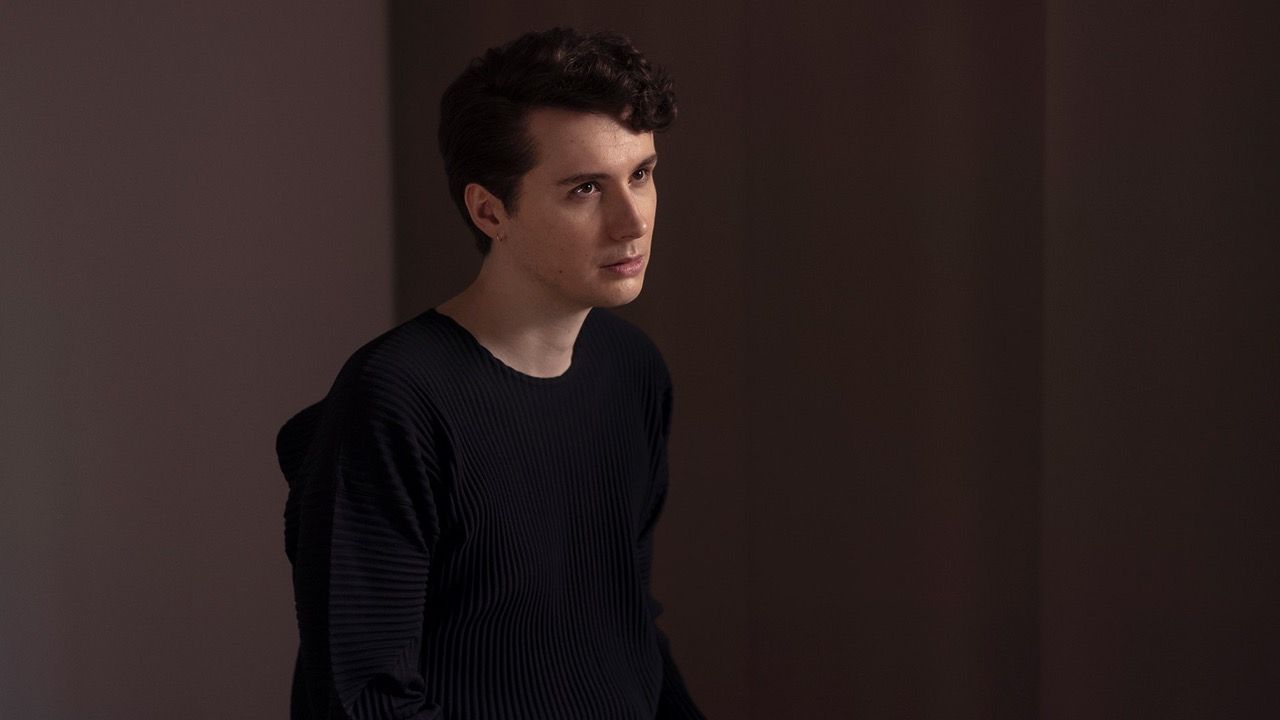
You Will Get Through This Night is out now, follow Daniel Howell @danielhowell
Interview by Malvika Padin



